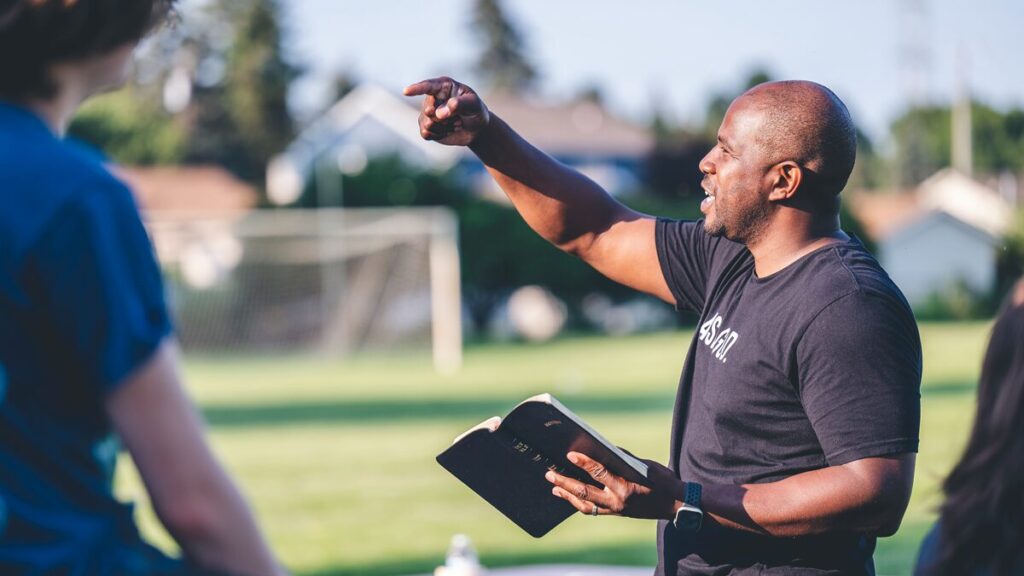Being married to a pastor is a rather unusual experience and one that I certainly didn’t seek out. There are very few careers where your marriage and family come under such public scrutiny. And there are even fewer circumstances where a spouse is referred to most commonly in relation to their partner’s job (“the pastor’s wife” being a prime example).
My husband has been in full-time pastoral ministry for the entire 28 years we have been married and we’ve had more than our fair share of blessings and bumps and bruises. We’ve lived in four different Australian states, moved house 13 times and ministered at 17 different churches, all the while managing to grow four children into teenagers.
We often talk about how local churches can show appreciation to pastors for what they do, but what about ministry spouses? How can local churches support them and love them well?
It’s not actually two for the price of one
The vast majority of spouses I have encountered are passionate about Jesus, ministry and living out the calling their spouse has accepted. Ministry is often a shared experience, but it shouldn’t be expected that it’s a shared vocation or career.
Once upon a time—and in some cases, in this time right now—there was/is an expectation that when the pastor was employed, the pastor’s spouse was essentially employed too, albeit without being paid a penny. It was a case of two-for-the-price-of-one. If you really care for your pastor and their spouse, please don’t have this mindset.
Don’t get me wrong, just like any other member of the Body of Christ, pastoral spouses contribute to the work of the church, but to have an expectation that the spouse will run the children’s ministry, lead the outreach team, play the piano each week, host small groups at their house or a million other tasks is simply not fair.
The pastor is the paid employee of the church, not the spouse.
The pastor has the responsibility that goes along with the job description and the role, not the spouse.
The pastor is the one who is accountable to the church board and congregation, not the spouse.
Anything the pastor’s spouse contributes is a blessing to the church, but it should not be an expectation.
A time and season for everything
Throughout our life in ministry, my involvement as a pastor’s spouse has varied. Before we had kids, I was heavily involved in running youth events and Pathfinders. Once our own children were born, I stepped into the children’s ministry space. When they got older, I was involved in leading worship and occasionally, in roles that placed me on the church board.
There are times when I have had a large capacity to be involved. There are times—like right now—where my capacity is diminished. We are currently in an intense stage of parenting. We have four teenagers (three of whom live at home, one who is a newly fledged, independent young adult in another state), we have just moved interstate to support ageing parents and we have both started new jobs. My ability to be involved in church is significantly reduced due to the demands of our life. Just because I was previously able to be involved last week or last month or last year doesn’t mean that I have the same capacity now. Please don’t make us feel guilty if you don’t see us quite as often or we say no to requests to serve. There is a time and season for everything.
Keeping the home fires burning
There is so much unseen work that goes into running any family, let alone a family in full-time ministry. The hours are odd, family time is often a rarity, solo parenting is common and someone has to make sure the dog gets fed. The financial stress in the current economic climate also means that it’s highly likely that both parents now work. In the middle of busy ministry, someone has to keep the home fires burning. Usually, it’s the pastor’s spouse.
You might lament that you haven’t seen the pastor’s spouse at the mid-week Bible study group or they didn’t contribute to the potluck lunch or make it to Sabbath school, but please know pastoral families are juggling many, many priorities. Instead of putting pressure on the pastor’s spouse to do more or be more, acknowledge all that they are doing to keep the home fires burning.
Healthy boundaries
Pastoral ministry is a never-ending vocation. There is not a point in time where a pastor can categorically state that everything is done. That means that it can be really hard to find a life/work balance when your work IS your life.
In my experience, families in ministry often struggle with the 24/7 nature of the job. There have been many times in our life when my husband has been called away at the last minute for a true emergency, where his spiritual care and compassion and comfort have been absolutely required. There have also been many times when people have called at the most inconvenient and random times for things that could have waited.
The onus for having healthy ministry boundaries is undeniably on the pastor, however the congregation can help by honouring those boundaries. Encourage your pastor to take time off each week, go out on date nights with their spouse and slip away for family holidays. I think the nature of the job attracts those personalities who tend to be workaholics, but very often the church congregation doesn’t help the situation either.
And please, unless it’s an absolute emergency, don’t contact the pastor’s spouse in an effort to get a message through to the pastor. Chances are we won’t know what meeting you’re talking about or who raised an issue last week or the answer to that curly theological question you’ve been seeking.
Ministry can be lonely
Ministry seems synonymous with moving. At the end of each year, “The Great Advent Movement” happens as pastors are transferred around the country. Although I’ve had some amazing experiences in our time in ministry in Tasmania, Victoria, Queensland and now, New South Wales, it has also been quite a lonely journey.
Making friendships in ministry can be complicated. The longest we’ve spent anywhere is eight years, but there’s always the sense that the next move will come. In our early marriage, we moved every two years which was barely enough time to feel like we’d put down roots. Sometimes I’ve found people keep me at arm’s length because I’m married to the pastor and they somehow fear judgement. Sometimes people want to get close in the hope I will influence the pastor in whatever direction they see a need. It can be very, very hard for people to get to know me as me.
So what can you do?
Ministry has been a blessing to our family. There are so many awesome experiences that we have had thanks to my husband’s job. But there have also been significant sacrifices and pressure points that we’ve had to navigate along the way. So, what can you do to encourage your pastor’s spouse? Here’s five things to consider:
- Call them by their name. They are not defined by their spouse’s job so please don’t use “pastor’s wife/husband” when referring to them.
- Encourage the pastor to make their family a priority. A life of ministry is not for the fainthearted and families often pay the price. Be that congregation that supports the pastor in spending time with their spouse and family.
- Be thankful for what the pastor’s spouse contributes. Each person will bring their unique gifts and talents and be in a different season in their lives. Thank the pastor’s spouse for whatever role they play, whether it’s in the background or up front. I can guarantee they are doing so much more behind the scenes than you would ever know.
- Provide opportunities for connection outside of church. Church can feel a lot like work for ministry families. Invite the pastor’s spouse to things outside of church too, like a coffee shop catch-up or a sporting event. Be gracious if they say no—maybe they are just juggling too much right now or maybe they are so used to moving they’ve forgotten how to put down roots.
- See your pastor’s spouse as an individual. Get to know them, their passions, their interests, their work or family history. They are a whole person who has likely sacrificed a lot to be a married to a minister.
Karen Collum is a teacher, internationally published author and recent graduate of Avondale University’s Master of Ministry. She lives in the Manning Valley on the mid-north coast of NSW with her husband and teenagers.






